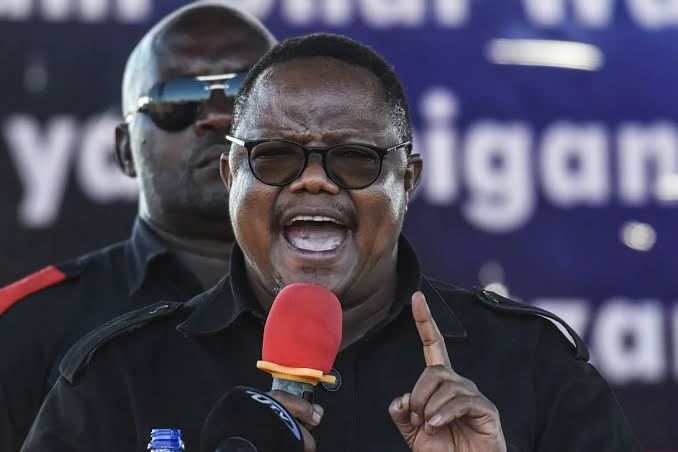Tundu Lissu, a prominent Tanzanian opposition figure and former presidential candidate, is facing treason charges, a serious offense punishable by death. These charges come in response to his outspoken calls for electoral reform, as he leads the main opposition party, CHADEMA, in its campaign for “No Reforms, No Election” ahead of this year’s national elections.
Lissu, who survived a brutal assassination attempt in 2017 where he was shot 16 times, has been an active critic of President Samia Suluhu Hassan’s government. His efforts have led to several arrests, including charges of sedition, and have fueled divisions within his own party. Despite this, Lissu remains steadfast in his belief that Tanzania’s political landscape needs fundamental change.
Read:Nelson Mandela Bay District Detectives arrest wanted suspects in Gqeberha
Lissu’s lawyer has argued that the treason charges are politically motivated, and Lissu has yet to plead. The prosecution claims he is inciting rebellion and aiming to disrupt the upcoming elections.
A trained lawyer, Lissu began his political journey in 1995. He was elected to parliament in 2010 and rose to leadership within CHADEMA. His stance against former President John Magufuli’s government led to his repeated arrests and, ultimately, his exile after the assassination attempt. Following his recovery in Kenya and Belgium, he continued to monitor political developments in Tanzania.
Lissu returned to Tanzania in 2020 to challenge Magufuli in an election but was forced to leave again due to death threats. After Magufuli’s death in 2021, Lissu had hoped for greater political freedoms under President Hassan. While Hassan initially took steps to ease political restrictions, rights activists have accused her government of continuing to suppress opposition voices.
The charges against Lissu have intensified tensions within CHADEMA, already divided over his strategy of pressuring the government into electoral reforms. Despite the risks, Lissu’s supporters view the treason charges as a badge of honor, but political analysts warn that a potential boycott of the elections could further harm the party’s chances, especially as it currently holds just 20 seats in parliament.

